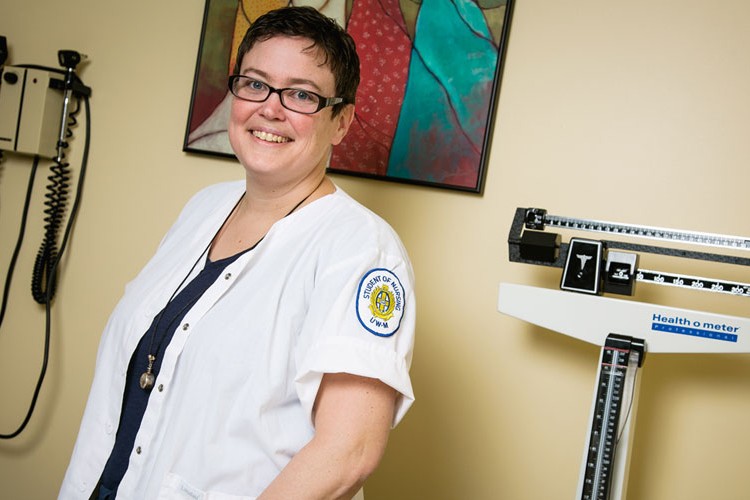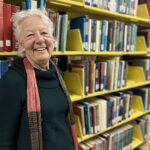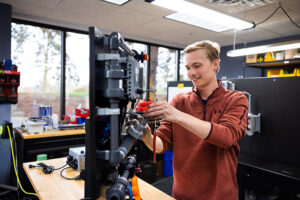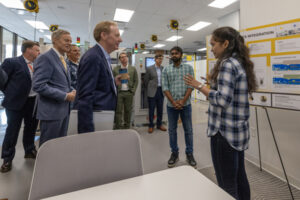- Liz Yohn
- Degree:BS in Nursing
- Hometown:Milwaukee
- It’s a fact:She’d rather be on her motorcycle. Her BMW R1100R is her daily ride; sometimes, for fun, she takes out her 1977 Honda Gold Wing.
For a number of years, Liz Yohn worked in animal welfare as a certified veterinary technician, focusing on animal-population health in areas that lacked access to veterinary care.
Her dedication took Yohn to Appalachia, the Caribbean and American Indian reservations. Her efforts included high-volume spay-and-neuter and vaccination campaigns, rabies eradication programs and client education. Along the way, she noticed the disparity in health-care delivery in human populations.
That observation, combined with the skill set learned in veterinary medicine, shaped Yohn’s decision to make a nursing degree part of her “next step.”
“An important part of my education at UWM is the encouragement I’ve received to focus on more than the nursing curriculum,” Yohn says. “Coursework leading to my nursing degree has been just one element of my education here. A lot of the perspective I’ve gained has come from taking classes in other disciplines.”
In particular, she points to the “guidance and mentorship” from Associate Professor of History Cary Miller. Yohn credits Miller with helping her recognize the importance of historical context and its impact on her work in public health.
“While it’s important to understand how someone else’s situation is dictated by history and policy, I also need to own the fact that my personal story is part of the picture. There’s my own ‘privilege’ and the profound advantages awarded me by being raised in a white, middle-class culture. I need to be open to what that means to somebody else.”
This sensitivity was important during her work at the Red Cliff Band of Lake Superior Chippewa Tribal Health Center through the Wisconsin Community Health Internship Program (WI CHIP).
During summer 2011, Yohn preserved the birth stories of the elders through a digital storytelling project, “Echoes of the Beginning.” She also worked with the Honoring Our Children Program, addressing maternal and child health disparities; Nooni Group, providing breast-feeding support, and CenteringPregnancy, bringing pregnant women together group to share concerns.
“On the reservation, topics such as white privilege, Manifest Destiny, ceded territories, self-determination and allotment are part of the every-day conversation,” Yohn says. “As a white person, I need to understand these issues as well as my role in them – and always in a spirit of love and service.”
Yohn’s passion for another clinical experience – with the Kenosha County Division of Health Prenatal Care Coordination (PNCC) program – also is evident. PNCC, a Medicaid benefit, assigns a nurse to pregnant women with multiple risk factors to help them access the resources needed for a positive birth outcome.
Yohn participated in home visits with the R.N. assigned to the program, and loved the opportunity to develop relationships with the clients and their family members.
As a Health Resources and Services Administration Nursing Scholarship Program recipient 2011-12, Yohn is committed to two years of work as a registered nurse in “underserved communities experiencing a critical shortage of qualified nurses.”
That lines up with the objective on her newly revised résumé. “A public servant at heart, graduate nurse seeks to fulfill a personal and professional commitment through a second career: Providing high-quality, culturally competent nursing services to medically underserved individuals, families and communities.”







